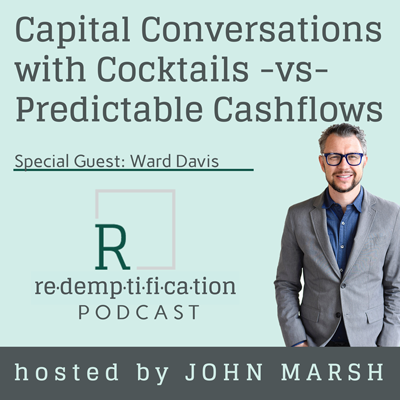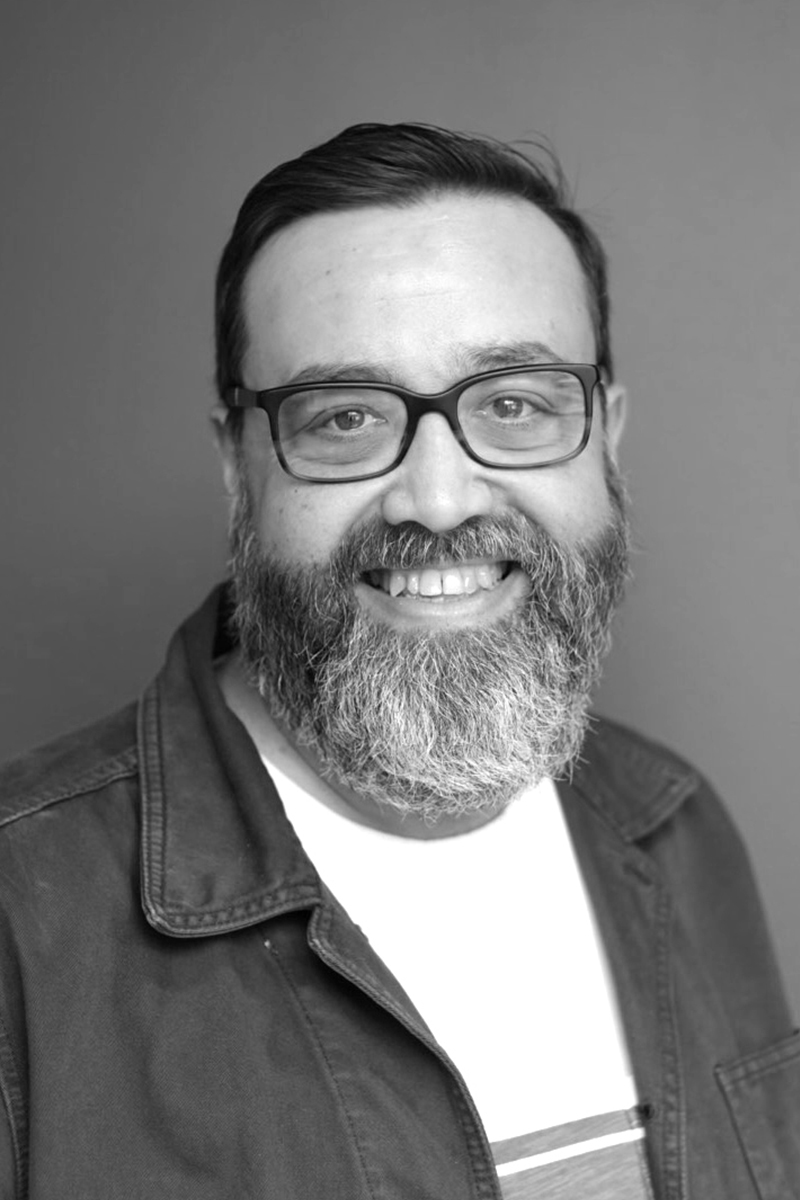Capital Conversations with Cocktails -vs- Predictable Cashflows with special guest Ward Davis
Ward Davis is a founding partner of High Street Real Estate & Development, a real estate company focused on urban and New Urban properties in vibrant, growing cities and towns. Ward recently served as President of the National Town Builders Association, a national trade organization for leading developers of economically, socially and environmentally sustainable neighborhoods and town centers. Ward has a BA in Economics from Davidson College, a General Course Diploma in Economics from The London School of Economics and Political Science, and an MBA from The University of Virginia.
Insights & Inspirations
- And the way I describe it now is there are a lot of people between the people that are on the ground, constructing buildings and people that are using buildings. You’ve got the subcontractors that are doing the work, that are hired by the contractors. The contractors are hired by a developer, a developer puts the deal together and hires a contractor, builds a building, gets it stabilized and as soon as possible, they sell the building so that they have the capital, then go do another project. – Ward Davis
- the effect that I feel we’re seeing these days, we’re building really crummy buildings that don’t have a long life, and it’s a real game of musical chairs and who gets left holding up a lousy product at the end. – Ward Davis
- The way you get the capital and the way the capital is aligned with what the expectations are, drive so much of the story – John Marsh
- What I’m finding is there’s actually a disconnect between the aggregators of capital and the money itself. – Ward Davis
- we need to give them a route for them to reevaluate their portfolio consistently. – Ward Davis
- we want to hold the properties we’ve developed forever because we know how they were built and we don’t think that anybody else builds a quality we want to buy very often. And we believe in the places that we’re investing. So we wanted people that were aligned with us on the longterm side. – Ward Davis
- The degree to which people are motivated by emotion at every single level from our president, all the way down is higher than people recognize. And there is a degree that investors love at cocktail parties to talk about the internal rate of return they got on whatever investment they got. – Ward Davis
- in the old days, the developers were master builders who did the development and they had a love for the structures, a care to keep them, they were building them in a community that they were somewhere place, not in anywhere place. They knew they were going to be there and they planned on holding them like we’re saying. – John Marsh
- So one of the pitfalls because you can make mistakes and they can beautiful. – Ward Davis
- Why aren’t investors interested in placemaking? Why aren’t investors and it turns out they are, if it’s presented right and thoughtfully.. – Ward Davis
- So patient investor does not mean when I say patient investor, I don’t mean an investor that doesn’t want returns. I mean, an investor that likes to be in it for the long, long haul. – Ward Davis
- I’ve learned in my own life either have to impress people or empower them, but I can’t do both.- John Marsh
- As far as alternatives for liquidity, you can set in place several mechanisms for buyouts and that sort of thing. But a lot of times it is you go into it with thoughtful financial structures. The metric I focus a lot of attention on is debt service coverage, which is your, basically your cash flow before debt service divided by your debt service. – Ward Davis
- the bad thing about a three to five-year or five to seven-year time horizon is you can get shellacked even with great operating performance just by the timing of required liquidity.- Ward Davis
- The difference in a home run and a foul ball is timing..- John Marsh
- Well, I mean, I have proven that I can’t time the market myself.- Ward Davis
- I’ll say you have to plan like everything depends on it and live like nothing does. – John Marsh
- The important nugget there is that we don’t say, “Oh, we think investors have these requirements for investments. And we’re trying to cram this square peg into a round hole to make it fit their requirements. We tell investors what we can do, what we can achieve. And if they like it, they like it and if they don’t like it, they don’t like it. So we don’t try to, we don’t try to misalign ourselves. – Ward Davis
- not even that long ago where I just talked about how our business model involved, giving up short term cashflow in exchange for buildings that are more durable and more beautiful, more endearingly beautiful.And actually I’ve found that that’s really not the case. We really don’t give up much, if anything, and a lot of cases outperform, on the short term cashflow because our properties are appreciated by tenants and buyers and that sort of thing. – Ward Davis
- So we don’t have to take down land. We don’t own the land. So that is a requirement for us to do in a large project because we don’t take down land and take all that risk up front. – Ward Davis
- I explained the way we develop it actually takes a nonproductive asset like a piece of land that, in that case was with no debt on it and turns it into an annuity stream. – Ward Davis
- The best way to make money in the short term is to develop something that’s crummier than what we develop right next to what we develop as fabulous.- Ward Davis
- Folks that have come into money very quickly, a lot of times they’re looking for that big head and are much more motivated by that cocktail party. I invested this oil well and it made a ton of money, and it’s kind of like gamblers. You don’t hear about those losses. You hear about the horse they bet on that won. But the folks that have been around the block a few times are you can’t pry predictable cashflow out of their hands. .- Ward Davis
Information & Links
- Ward Davis – High Street Real Estate & Development, LinkedIn
- National Town Builders Association (NTBA), NTBA president – Grant Humphreys
- Urban Land Institute (ULI)
Closing Questions
What have you read that we should read?
- Two Authors – Chuck Marohn of Strong Towns and Joe Minicozzi of Urban3
Who do you know that we should know?
- Daniel Hintz of Velocity Group
Where have you been that we should go?
- Bruges, Belgium




